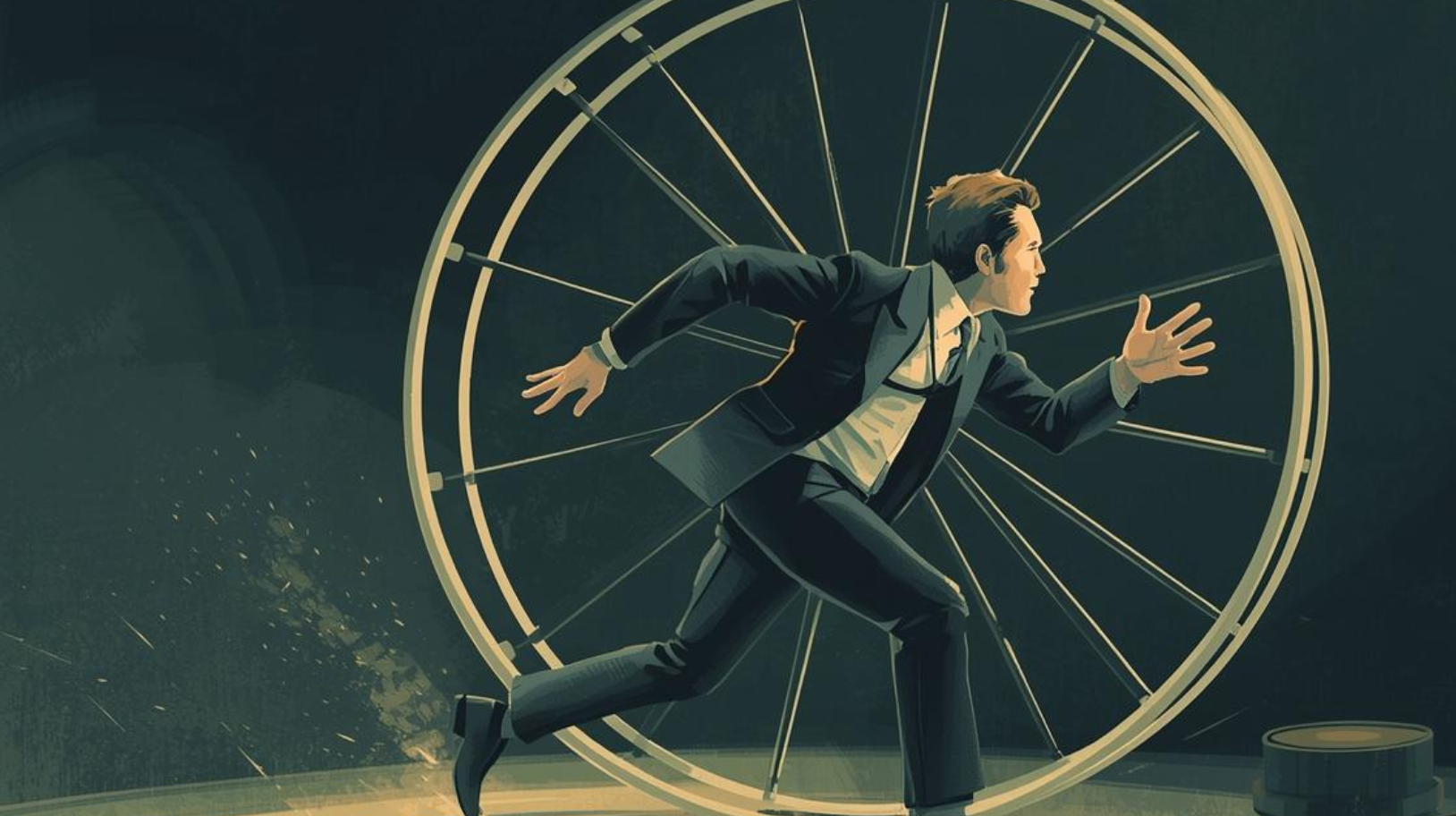Mastering Entrepreneurship: Your Ultimate Guide to Starting Strong
The Most Important Leadership Skill in 2026: Make Learning Part of the Work
Leadership in the New Year: How Motivation and Belonging Outperform Targets
Beyond Work vs. Leisure: How to Design Time That Actually Restores You?
The Achievement Trap: Why We’re Wired to Want “More”
Do You Want To Be An Employee or An Entrepreneur? How To Decide Which Path Is Right For You?
How to Protect Yourself in Any Business Transaction?
The First Step to A Successful Business: A Shareholders’ Agreement
Growth With a Conscience: How Do Commercial Choices Drive Health Outcomes?
Cloud Accounting Explained: Key Differences You Need to Know
The EQ-Driven Leader: Empathy for Better Workplace Decision Making
Related Posts
The Achievement Trap: Why We’re Wired to Want “More”
The Enron Scandal: A Deep Dive into its Downfall and Lessons Learned
- Editor
- November 6, 2023
- 0
Image by rawpixel.com on Freepik Imagine - It's the dawn of the 21st century. The economy is booming, dot-coms are soaring high, and among them, a particular star shines the brightest - Enron. An energy company that at its peak carried a worth of about $70 billion. But within a span of few years, this magnificent empire crumbled into nothing, drowning in a sea of fraud and deceit. "The Enron scandal drew attention to accounting and corporate fraud, as its shareholders lost $74 billion in the four years leading up to its bankruptcy, and its employees lost billions in pension benefits." What truly unfolded in this financially catastrophic event known as the Enron Scandal? You're about to uncover this riveting and…
Bring Love to Business: How a Forbes Under 30 Couple Built a Business and a Life Together
- Editor
- January 9, 2025
- 0
Delugs co-founders Chia Pei Qi and Kenneth Kuan’s story is an inspiring example for aspiring entrepreneurs and couples considering a shared business venture. From getting to know each other to building a life and a thriving business together, their journey highlights the importance of mutual respect, aligned goals, and adaptability. As co-founders and partners in life, they’ve mastered the art of balancing personal and professional dynamics, turning challenges into opportunities. Through their experiences, they offer valuable advice to couples: test your compatibility, communicate openly, and ensure your visions align. Chia and Kuan prove that with the right foundation, love and business can not only coexist but flourish together. From Hobby to Handcrafted Luxury For Chia and Kuan, crafting leather goods…
The First Step in any successful M&A transaction is Data.
- Editor
- August 13, 2024
- 0
Mergers and acquisitions (M&A) are complex endeavors that require meticulous planning, strategic foresight, and, above all, comprehensive data. In the contemporary business landscape, where data drives decisions, understanding what information is crucial to the M&A process can significantly influence the outcome. Therefore, the first step in any successful M&A transaction is Data. This article will explore the critical aspects of data in M&A, focusing on identifying the right data, understanding customer and market insights, the role of operational metrics, and the broader scope of data beyond financials. Identifying the Right Data The first step in any successful M&A transaction is identifying and preparing the right data. Sellers often wonder what data buyers need to evaluate the deal and decide whether…
Seasons of Growth: What Nature Teaches Us About Strategy
- Media TBP
- July 1, 2025
- 0
Rooted Leadership: What Business Can Learn from the Natural World The modern business landscape pushes for relentless acceleration, propelled by an undercurrent of continuous innovation, rapid scaling, and an 'always-on' operational mindset. Leaders are under pressure to deliver continuous growth and chase new milestones which often inadvertently cultivate a "hustle" culture. However, this pursuit of acceleration exacts a heavy toll: employee burnout, resource depletion, and a struggle for sustained relevance. We have collectively fallen for the myth of endless productivity, believing that the more efficient our processes, the more work we can (and should) undertake. This mindset traps us in a loop of constant doing, neglecting the essential value of pause, renewal, and strategic timing. In contrast, the natural world…
Do You Want to Expand Your Business into New Cultural Markets? Lessons from a Dutch Company Thriving in APAC
- Media TBP
- March 11, 2025
- 0
Forging a Unified Culture: How a Century-Old Dutch Business Thrives in APAC Join us as we explore the remarkable journey of a century-old European company expanding into Asia with its Managing Director Asia Pacific, Mr Andy Ang. This article delves into their strategic approach to growth, from establishing a solid presence in key Asian markets to building robust systems that support seamless integration. Discover how they are successfully adapting their corporate culture—deeply rooted in family values—while aligning it with the dynamic business environment in Asia. Learn how this company is not only expanding its footprint but also ensuring its legacy and values thrive in a new and diverse region. A story of tradition meeting innovation for sustainable success! Mr Andy…
Recent Articles
View AllCollective Articles
The Business Paradox
Insight, Inspire and Learn
© 2025 The Business Paradox. All rights reserved.


















